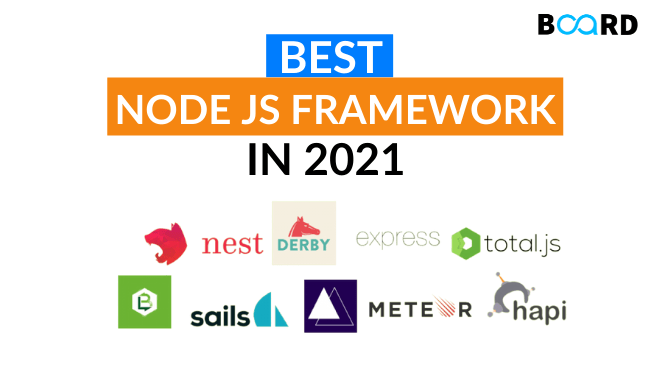Node.js Essentials: Understanding Express, NPM, and More
Express as the most popular Node.js framework

There is a multitude of frameworks that Node.js brings to the table for developers to implement scalable and agile mobile & web applications. While different frameworks are apt for certain specific use-cases, Express is the most popular and frequently used framework by the developer community to implement both webs as well as mobile applications. Express is the first-choice framework for applications built on top of Node.js. The framework provides a collection of routing libraries that forms a dynamic layer on the web application allowing developers to include custom features on top of the existing Node.js framework.
In addition to the sophisticated features, Express also introduces more than 14 template engines that can be referenced by developers to give shape to their applications at a fast pace. Express is also a preferred choice for developers for designing API (Application Programming Interface) based applications, as well as the framework, has inbuilt HTTP utility functions & features enabling quick & robust design of APIs.
Why is Express the most preferred Framework amongst other top Node.js Frameworks?
Amongst the multitude of frameworks that are compatible with Node.js; the four top frameworks which are mostly adored and referred by developers are Express, Koa, Meteor, and Sails.js. The section below would explain the various reasons why Express is the most popular framework compatible with Node.js.
1. Performance
Performance is one of the bases of the most preferred factors in which developers select the framework of their choice. Express being a minimalist framework has a thin layer of customization over the existing Node.js features. This means that the inherent performance optimization (in terms of input/output operations, event routing etc.) of Node.js is not compromised.
2. Simplicity
The ‘Express’ framework is not attached to any pre-defined design patterns such as the MVC architecture or the MVP framework etc. Hence, designers have the leeway to orchestrate their own design patterns which would suit the particular application.
3. The rich collection of templates
Designers and developers generally prefer frameworks with an exhaustive collection of templates as these are readily usable and gives a concrete shape to their application without them having to code every bit of it. There are multiple options provided by the express-generator which can be leveraged by developers as per the need of the situation.
How to choose the best framework for a particular Project/Application?
Despite the plethora of options and features available in Express; there’s no one-size-fits-all concept while choosing the appropriate framework for projects. A few of the parameters which are emphasized by developers are –
- Performance & scalability
- Options for easy customization
- Availability of rich collected of pre-defined templates & modules
- Available documentation & community
Taking all of these parameters into consideration; Express proves to provide a holistic framework to developers and designers with an optimal mix of all the aforementioned features.
Where not to use Express?
While it’s a proven fact that Express is the go-to framework for most developers; still there are certain corner cases wherein Express should be avoided. For example – as mentioned, Express doesn’t tie with any defined design pattern frameworks (like MVC, etc.); therefore, it may not be suitable for standardization projects as it would be comparatively difficult to maintain.
